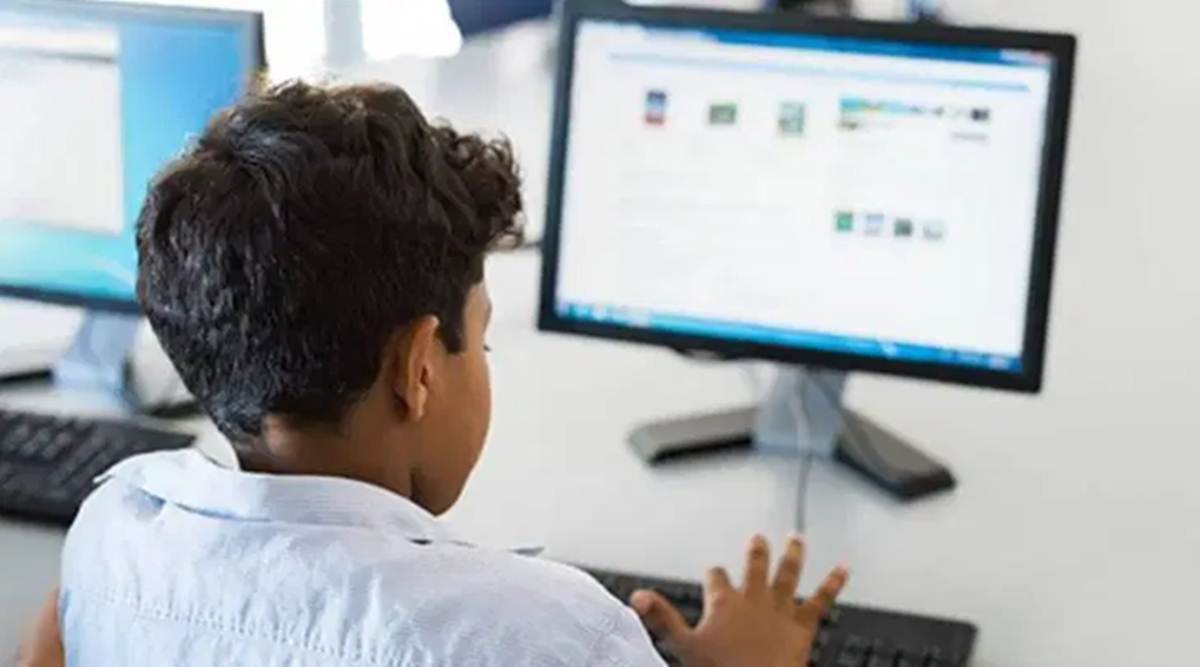According to the survey, about 28 per cent of a total of 35,000 students, teachers, principals and parents cited intermittent and lack of power as a major hindrance.
ABOUT 27 per cent of students don’t have smartphones and laptops to access online classes amid the Covid school shutdown. But among those who do, most find online learning either “joyful” or “satisfactory”, although mathematics and science are the toughest to learn, a government survey of students has found.
The survey, conducted by the National Council of Educational Research and Training (NCERT), covers 18,188 students studying in CBSE-affiliated schools, Kendriya Vidyalayas (KVs) and Navodaya Vidyalayas (NVs).
According to the findings shared by the Education Ministry Wednesday, as part of its ‘Students Learning Enhancement Guidelines’, about 33 per cent felt online learning was either “difficult” or “burdensome”.
Significantly, among those who are able to access online classes, the survey found that almost 84 per cent rely on smartphones to access online classes. Laptops, a distant second, are used by about 17 per cent while TV and radio were the least used for online learning.
Opinion | Online education must supplement, not replace, physical sites of learning
According to the survey, about 28 per cent of a total of 35,000 students, teachers, principals and parents cited intermittent and lack of power as a major hindrance.
The survey also mapped subjects in which children are facing problems at home. “Mathematics contains a number of concepts, which require interaction, continuous support, monitoring from the teacher, and these aspects were lacking in the online mode of teaching,” the survey states.
“Next to mathematics, science was identified as the subject of concern since it contains several concepts and practical experiments, which could only be done in the laboratory under the supervision of the teacher,” it states.
The survey was undertaken by the NCERT to “address the issues related to gaps and/or loss of learning among students, during and after the lockdown”.
In order to support students with no digital device or limited access to one, the guidelines suggest capacity building of teachers.
Since textbooks would be the only resource for children with no digital devices, the guidelines suggest that states and Union Territories ensure that they have the full set available at home. They also suggest that supplementary learning material, such as workbooks, worksheets, projects, quizzes and puzzles, be delivered to students at home.
Opinion | Post-pandemic, a shift in mindset will be needed — to teach and learn
“In case, the school teachers and heads are staying in the same area where many students who do not have any contact device are also living, the school can create a Shiksha Team with the help of community members. This Team can include teachers from different schools and volunteers for arranging safe classes in the community at open spaces,” the guidelines state.
If this is not possible, the Ministry suggests that teachers form groups of students who stay in nearby locations and are of same or different grades and empower them to help each other and do peer learning and tutoring.
Providing a TV set at the community centre in a village is another suggestion for students to watch educational programmes.
? The Indian Express is now on Telegram. Click here to join our channel (@indianexpress) and stay updated with the latest headlines
For all the latest Education News, download Indian Express App.
Source: Read Full Article






